Stem cell therapy for infertility due to premature ovarian failure (POF) is now being offered by R3 Stem Cell at several Centers globally. The treatment has been very effective in select patients, with successful pregnancies and/or success with IVF resulting.
Recently, R3 Stem Cell’s research team published a comprehensive study on the topic in Stem Cell Reviews and Reports titled, “The Therapeutic Potential of Human Umbilical Cord Derived Mesenchymal Stem Cells for the Treatment of Premature Ovarian Failure.”
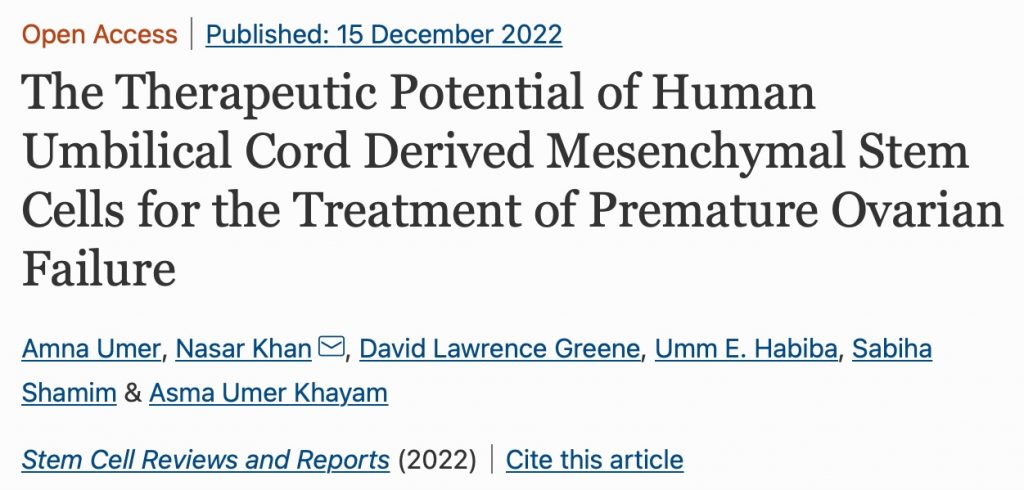
 POF affects one in every 250 females under age 35, and one in every 100 women under the age of 40. POF significantly reduces the likelihood of a natural pregnancy. The condition may lead to a reduction in estrogen, which leads to vaginal dryness, discomfort, and itching being common symptoms.
POF affects one in every 250 females under age 35, and one in every 100 women under the age of 40. POF significantly reduces the likelihood of a natural pregnancy. The condition may lead to a reduction in estrogen, which leads to vaginal dryness, discomfort, and itching being common symptoms.
Sexual function is hampered, and a reduction decline in bone mineral density (BMD) is a hazard as well. Surprisingly, POF women’s life span is reduced due to potential cardiovascular illness and neurodegenerative disorders.
There are four potential reasons why women develop POF. The quality of the oocytes and follicular pool can be affected by genetic, paracrine, endocrine, mitochondrial dysfunction, and metabolic variables, yet the origin of POF is unknown.
Below is the illustration that was published in R3’s research article:
So how does POF cause infertility? The main factors with POF are follicle depletion and follicular dysfunction.
A high FSH level is a clear indicator of ovarian failure. There are other hormones that can be measured, which include stimulating thyroid hormone (TSH), prolactin (PRL) and anti-Müllerian hormone (AMH). R3’s consulting providers will evaluate each person’s hormone levels, age and extenuating medical history to determine the candidacy for stem cell treatment.
Some of the more common causes of POF include autoimmune diseases with anti-ovarian antibodies causing ovarian damage, genetic changes, such as point mutation, chromosome imbalances involving the X chromosome or autosomes, previous pelvic surgery and chemotherapy, and environmental factors, such as viral infections, radiation, and toxins.
Despite knowing a lot about the causes of POF, over half of cases are still unknown as to how they occur. Traditional treatments for POF include hormone replacement therapy (HRT), androgen, counseling, synthesized bioidentical hormones, Dehydroepiandrosterone, donated oocytes, exercise and diet.
What are the symptoms?
While HRT is the most common treatment for POF, it can be dangerous in women who have a history of ovarian cancer or breast cancer; it also raises the risk of blood clots, cancer, strokes, and other complications. Egg donation can possibly work, but the donation of egg supplies is limited, and patients who receive these eggs will not be able to produce biological children of their own.
Due to the fact that no one treatment has been extremely successful for POF, stem cell therapy is becoming more common for infertility. And R3 Stem Cell is leading the way in offering the procedures!
It has become apparent that umbilical cord stem cells are a superior tissue to use for infertility. The available research studies described in R3’s journal article show significant success in both animals and humans with POF.
How exactly do stem cells help repair ovarian damage? In the diagram below, you can see how the stem cells administered act through what’s called paracrine signaling. Paracrine signaling refers to “cell to cell communication”, which means that the cells are able to induce many actions in the damaged tissue.
The cells are able to prevent scar tissue (ovarian fibrosis), spark up new blood flow (angiogenesis), prevent cell death, promote new cells to the ovaries, and modulate the immune system as well. The diagram below illustrates this:
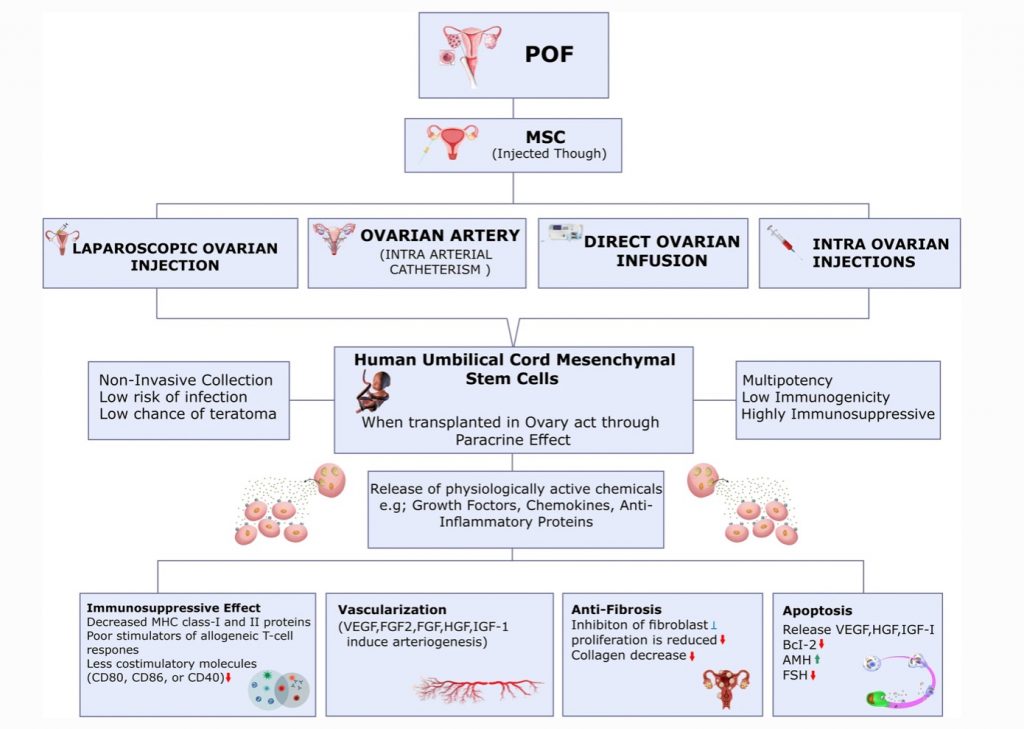

In the studies discussed in the research paper review, R3 noted that with stem cell therapy quite a few women achieved successful pregnancies with live births. Globally, R3 Stem Cell has seen the same results, with patient selection occurring to make sure the best chance of success occurs.
R3 Stem Cell’s Centers perform stem cell therapy for infertility with POF using both umbilical cord stem cells and umbilical cord derived exosomes. Females are treated with both intravenous stem cells and ultrasound guided intra-ovarian injections.
Due to R3’s extensive quality control of the biologics, procedures internationally over the past decade have been very safe. In addition, the providers performing the procedures are highly qualified in the ultrasound guided injections. This ensures safety and accuracy being first rate.
For individuals interested in a free consultation to discuss stem cell therapy for infertility due to POF, call R3 Stem Cell today to schedule at +1 (844) GET-STEM, which is +1 (844) 438-7836.
ABOUT US
R3 Stem Cell is a global leader in regenerative medicine, offering advanced stem cell and exosome therapies through Centers of Excellence in over 45 locations across 7 countries. Our mission is to provide first-rate, customized regenerative treatments, including stem cells, exosomes, PRP, vitamins, and peptides, to help patients achieve a better quality of life. With more than 26,000 procedures performed and an 85% patient satisfaction rate, our experienced, compassionate providers are committed to delivering safe, effective care. All therapies are nonsteroidal, outpatient procedures designed to harness the body’s natural repair mechanisms and support tissue regeneration. Individual results may vary, and only your medical professional can explain all the risks and potential benefits of any therapy based on your unique circumstances.
Subscribe newsletter
MAIN MENU
Disclaimer
Stem cell therapy is considered experimental and is regulated by the U.S. Food and Drug Administration (FDA), but it is not FDA-approved. R3 Stem Cell does not offer stem cell therapy as a cure for any medical condition. No statements made on this site have been evaluated or approved by the FDA. This site does not provide medical advice. All content is for informational purposes only and is not a substitute for professional medical consultation, diagnosis, or treatment. Reliance on any information provided by R3 Stem Cell, its employees, others appearing on this website at the invitation of R3 Stem Cell, or other visitors to the website is solely at your own risk. R3 Stem Cell does not recommend or endorse any specific tests, products, procedures, opinions, or other information that may be mentioned on this website. R3 Stem Cell is not responsible for the outcome of your procedure. The FDA considers stem cell therapy experimental at this point.
R3 has treatment centers in 8 countries. In the USA, no claims are made for treating any specific condition. Those are meant for R3 International treatment.
Recent R3 Stem Cell Awards & Accolades
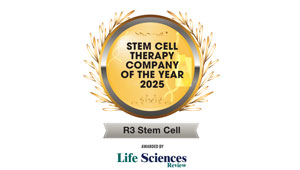






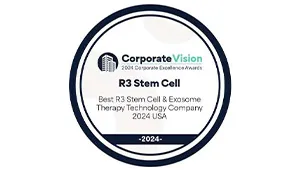

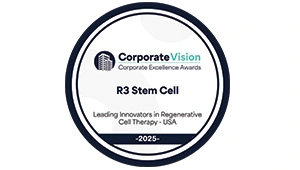
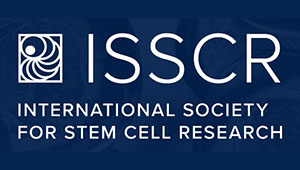
The links below provide national city resource information about stem cell therapy. To find a clinic near you click here
CALIFORNIA
- San Diego
- San Jose
- Fresno
- Anaheim
- Bakersfield
- Beverly Hills
- Chula Vista
- Corona
- Del Mar
- Elk Grove
- Escondido
- Fremont
- Fontana
- Fullerton
- Hayward
- Huntington Beach
- Garden Grove
- Irvine
- Sacramento
- Lancaster
- Long Beach
- Los Angeles
- Los Angeles RM
- Modesto
- Moreno Valley
- Oakland
- Oceanside
- Ontario
- Orange
- Oxnard
- Palmdale
- Pomona
- Rancho Cucamonga
- Rancho Santa Margarita
- Riverside
- Roseville
- Salinas
- San Bernardino
- Santa Ana
- Santa Barbara
- Santa Clarita
- Santa Rosa
- Stockton
- Sunnyvale
- Torrance
- Turlock
FLORIDA
- Jacksonville
- Gainesville
- Cape Coral
- Fort Lauderdale
- Hialeah
- Hollywood
- Miami
- Miramar
- Orlando
- Pembroke Pines
- Port St. Lucie
- St. Petersburg
- Tallahassee
- Tampa
GEORGIA
HAWAII
IDAHO
ILLINOIS
INDIANA
IOWA
KANSAS
KENTUCKY
LOUISIANA
MARYLAND
MASSACHUSETTS
MICHIGAN
MINNESOTA
MISSISSIPPI
MISSOURI
NEBRASKA
NEW JERSEY
NEW YORK
NEW MEXICO
NEVADA
NORTH CAROLINA
OHIO
OKLAHOMA
OREGON
PENNSYLVANIA
RHODE ISLAND
SOUTH CAROLINA
SOUTH DAKOTA
TENNESSEE
Disclaimer: The city links above provide general information on stem cell treatment. To find an R3 Stem Cell clinic near you click here
The USA stem cell leader offers procedures in
8 Countries including:
Copyright © 2017-2026 R3 Stem Cell. All Rights Reserved.

Dr. David Greene
MD, PhD, MBA
Dr. David Greene, MD, PhD, MBA, is a pioneering leader in regenerative medicine and healthcare marketing. As a residency and fellowship-trained orthopedic surgeon, Dr. Greene transitioned from clinical practice to become the founder and CEO of R3 Stem Cell and US Lead Network, where he has revolutionized patient care and medical practice growth through innovative therapies and digital marketing strategies. He has authored two influential books on healthcare internet marketing, ranks among the top expert authors globally, and has been featured on the cover of Corporate Vision magazine for his impact on global regenerative therapies. Beyond his professional achievements, Dr. Greene is passionate about education, compassion, and continuous innovation.
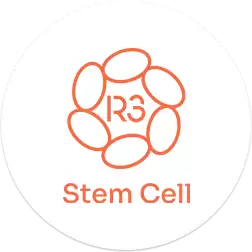

Sorry, the comment form is closed at this time.